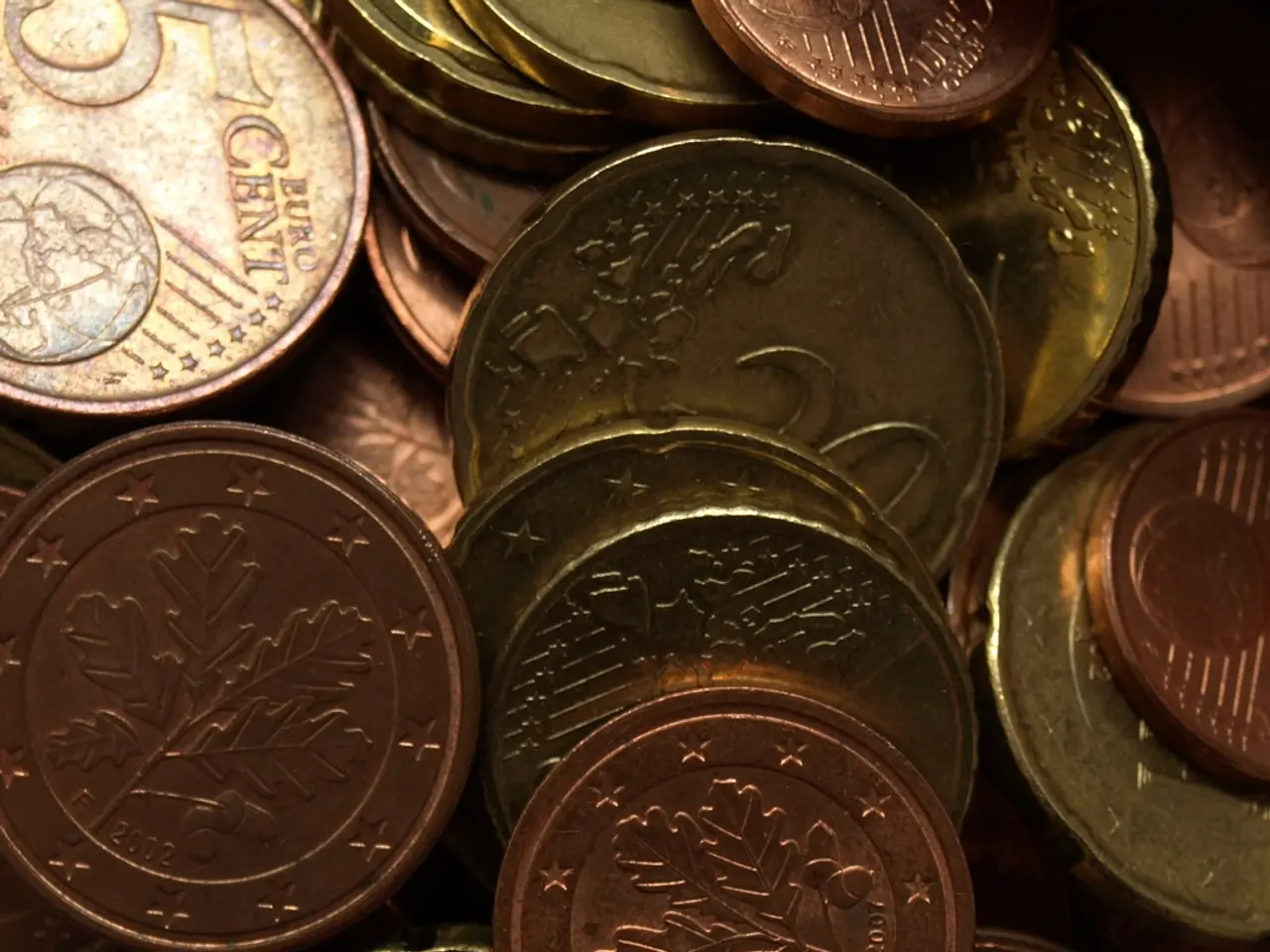Instructions for promptly and comprehensively transforming digital currencies into physical money
In the world of digital currency, converting cryptocurrency to cash is a common need for many investors and users. Two primary methods exist for this conversion: third-party centralized broker exchanges and peer-to-peer (P2P) platforms. Each method has its advantages, fees, and risks, as detailed below.
Using Third-Party Broker (Centralized) Exchanges
Platforms such as Coinbase, Binance, Kraken, and Gemini allow users to sell their crypto and withdraw fiat currency via bank transfers, debit, or credit cards. These exchanges offer high liquidity and wide crypto support, making it easy to sell quickly and in large amounts. They are also straightforward with user-friendly interfaces and have secure escrow and regulatory compliance measures in place.
However, there are downsides to consider. Typically, higher overall fees are associated with these exchanges, including trading fees and withdrawal fees. Processing times can vary, with transfers taking anywhere from hours to days, depending on the bank and platform. Additionally, users are dependent on the platform's security and regulatory environment, which may lead to potential delays and restrictions due to bank linkages. Lastly, users do not control the custody of their crypto while it's on the platform.
Using Peer-to-Peer (P2P) Platforms
In P2P trading, users sell their cryptocurrency directly to other individuals through a platform that acts as a facilitator, offering services like escrow and user ratings. Examples include KuCoin P2P and similar services. This method generally offers lower fees than centralized exchanges, allowing users to negotiate prices directly, potentially maximizing returns. Transactions are faster and more flexible, with fewer strict bank dependencies.
On the other hand, P2P trading requires careful buyer/seller vetting due to the more involved process. There is also a risk of scams or fraud if escrow service or platform protections are weak. Trades may take longer due to payment verification and manual negotiation.
Additional Note: Bitcoin ATMs
Bitcoin ATMs offer a way to convert crypto to cash instantly without a bank account, but they charge high fees and have cash withdrawal limits, plus limited availability in rural areas.
Choosing between these methods depends on factors such as urgency, desire for control, fee sensitivity, and risk tolerance. For quick and secure cashout, centralized exchanges are often preferred; for better rates and privacy, P2P may be better if users handle due diligence carefully.
It's essential to note that transferring cryptocurrency to a bank account involves a small exchange fee, and the exchange rate is dependent on current demand. Cryptocurrency's instability limits its acceptance by traditional banks, and profits from selling cryptocurrency are taxable, as reputable crypto exchanges report transactions to government authorities to prevent money laundering activities.
In summary, understanding the advantages, fees, and potential risks of each method is crucial when deciding how to convert cryptocurrency to cash. Whether users opt for centralized broker exchanges, P2P platforms, or Bitcoin ATMs, careful consideration and due diligence are necessary to ensure a smooth and secure transaction.
[1] Centralized Broker Exchanges [3] P2P Platforms [4] Bitcoin ATMs
- Centralized broker exchanges, such as Coinbase, Binance, and Gemini, offer advantages like high liquidity, wide crypto support, and secure measures, yet may have higher overall fees and potential delays due to bank linkages.
- Peer-to-peer platforms, like KuCoin P2P, can provide lower fees and faster transactions, but careful buyer/seller vetting is necessary to mitigate risks of scams or fraud.




